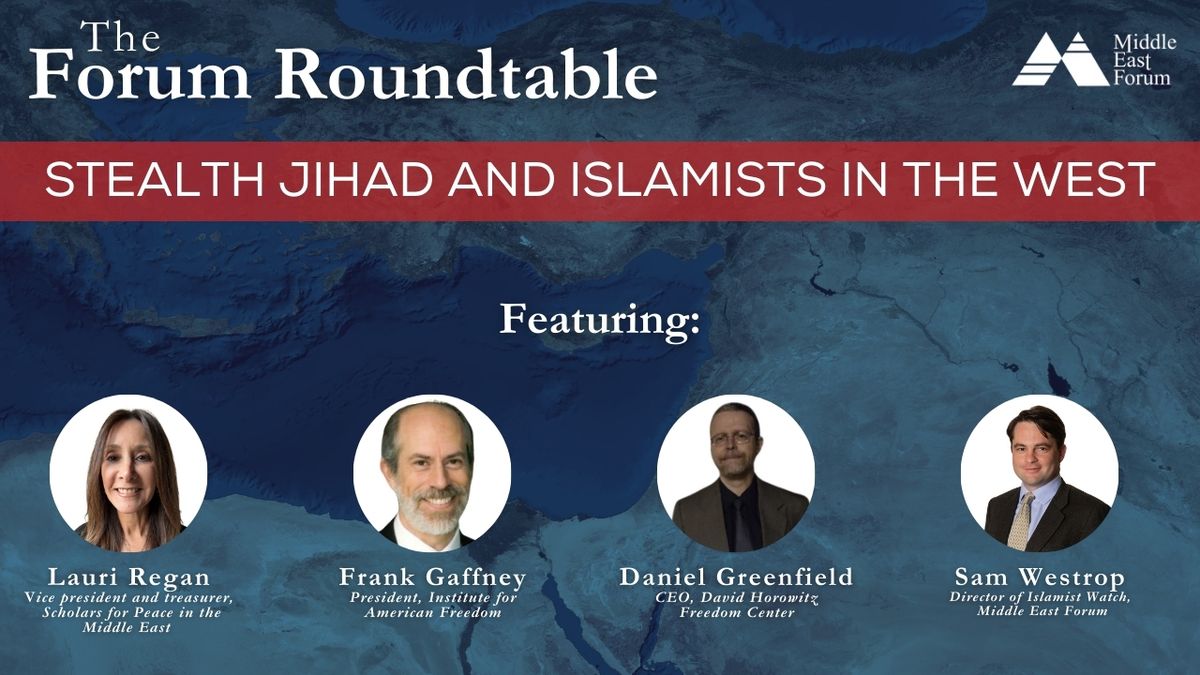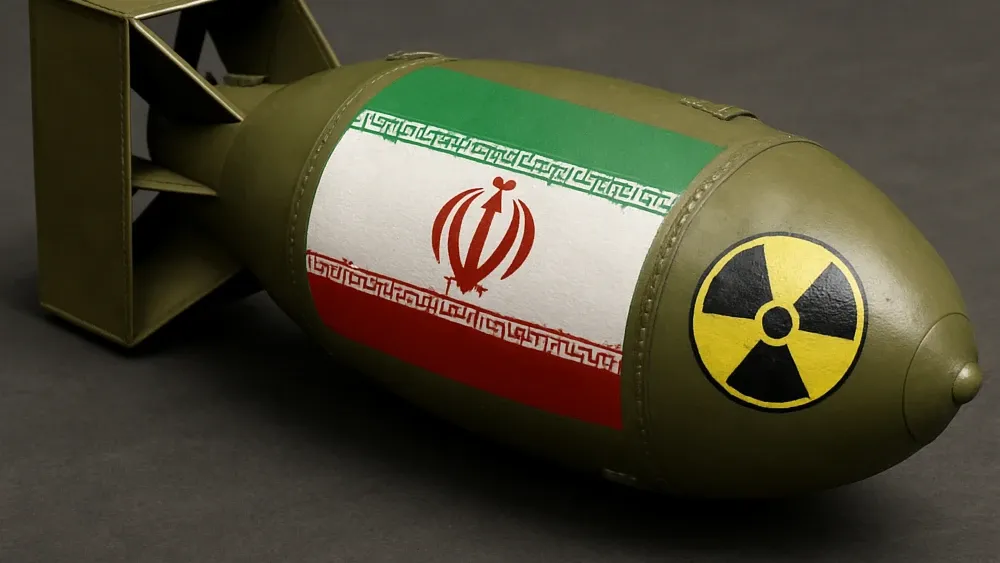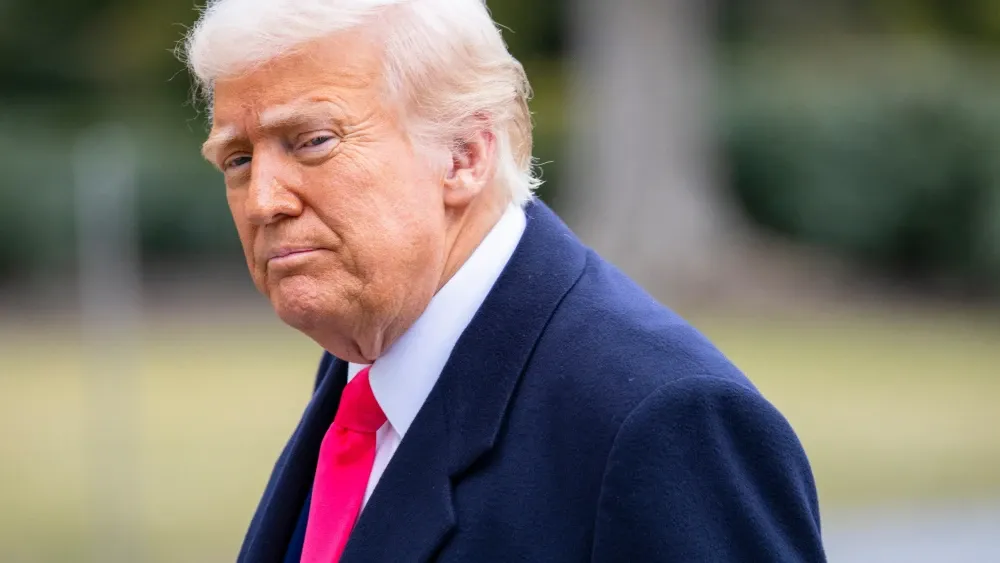| ||
 | ||
| A Grim Milestone in D.C., Hamas-Aligned U.S. Charities, & the Latest on Iran By Winfield Myers ● May 30, 2025 Smart Brevity® count: 6.5 mins...1683 words Jonathan Spyer writes that the murder of two Israeli embassy employees in Washington marks the return of far-left violence in the West against Jewish and Israeli targets as well as the first deliberate targeting and murder of Jews by an American far-leftist on U.S. soil. Sam Westrop exposes the collaboration between Gaza relief efforts and two U.S.-based Hamas-aligned charities. We follow with four analyses of Iran that provide you with in-depth information with the developing situation. Benjamin Weinthal—in a Fox News report answered (mendaciously) on X by the Iranian foreign minister—reveals an Austrian report that undermines unfounded U.S. claims that Iran abandoned its nuclear program years ago. Other articles explore the Islamic Republican Guard Corps’ thirst for cryptocurrency (and energy), Iranians’ fury at their leaders, and the regime’s negotiating tactics over its nuclear ambitions (stall for time while developing nukes). | ||
ICYMI – The Forum Roundtable: Stealth Jihad and Islamists in the WestWhile violence remains a primary tactic for Islamist movements, those who seek death to America, Israel, and the West also operate in more subtle, irreversible, and dangerous ways. College campuses post-October 7 have witnessed severe and continued pro-Hamas and pro-jihad agitation (seemingly greenlighted by administrators and faculty members who have enabled and abetted the Islamist narratives used to indoctrinate young minds for decades). This constitutes only one obvious result of the West’s failure to address the stealth jihad that’s taking place across the Western world. Frank J. Gaffney is the president of the Institute for the American Future and the host of “Securing America with Frank Gaffney” on the Real America’s Voice network. Lauri Regan, host of the Forum Roundtable podcast series, serves as vice president, treasurer, and board member of Scholars for Peace in the Middle East and as a board member of Polaris National Security. Sam Westrop is director of the Middle East Forum’s Islamist Watch project. To watch the full podcast episode, click here. | ||
The Capital Jewish Museum Murders: A Grim MilestoneThe recent murder of Israeli diplomats Yaron Lischinsky and Sarah Lynn Milgrim at the Capital Jewish Museum in Washington, D.C., marks a disturbing return of violence from Western far-left activists. Why it matters: This resurgence signals a dangerous shift in the West's socio-political landscape.
Historical context: Far-left violence against Jewish and Israeli targets once terrorized the late 20th century, seemingly fading by the 1980s.
What's new: Elias Rodriguez's attack represents the first deliberate targeting and murder of Jews by an American far-leftist on U.S. soil.
The bottom line: The bullets fired at the Capital Jewish Museum were not just aimed at individuals, but at the very fabric of Jewish and Israeli communities.
To read the full article, click here. | ||
Did New Gaza Aid Effort Utilize U.S. Hamas-Aligned Islamist Charities?The Gaza Humanitarian Foundation (GHF) has controversially distributed aid from U.S. Islamist charities Rahma Worldwide and Heroic Hearts, both with ties to Hamas, raising serious concerns. Why it matters: The infiltration of Islamist ideologies into humanitarian aid efforts threatens transparency in such efforts and global security.
Background: Rahma Worldwide, operating from Michigan, has longstanding connections with Hamas, openly collaborating with its leaders.
What's new: In a troubling twist, Rahma’s narrative shifted from claiming unauthorized distribution by GHF to acknowledging collaboration.
The bottom line: Islamist exploitation of humanitarian aid must be urgently addressed to safeguard the integrity of global aid efforts.
To read the full article, click here. | ||
Explosive New Intelligence Report Reveals Iran’s Nuclear Weapons Program Still ActiveAustrian intelligence has uncovered Iran's active pursuit of nuclear weapons, directly contradicting U.S. intelligence assessments and raising alarm. Why it matters: This revelation exposes a dangerous oversight in U.S. intelligence and underscores the immediate threat posed by Iran's nuclear ambitions.
Background: Austria's Directorate State Protection and Intelligence Service highlights Iran's relentless pursuit of regional dominance through nuclear capabilities.
What's new: The Austrian findings sharply contradict the outdated assessment from the U.S. Office of the Director of National Intelligence, which fallaciously claimed Iran halted its nuclear program in 2003.
The bottom line: Iran's defiance of international norms and pursuit of nuclear weapons demands urgent, decisive action from the global community.
To read the full article, click here. | ||
How Iran’s Cryptocurrency Gamble Empowers the Revolutionary Guards and Drains the StateIran's use of cryptocurrency as a workaround for sanctions has spiraled into a major crisis, exacerbating capital flight, stressing electricity supplies, and empowering the Islamic Revolutionary Guard Corps (IRGC). Why it matters: Iran's crypto strategy to bypass banking restrictions has backfired, fueling internal corruption and energy crises.
Background: Iran's government issued over 10,000 crypto-mining licenses, leading to severe power shortages and economic strain.
What's new: Recent reports highlight a 70 percent rise in crypto outflows linked to military tensions with Israel, indicating the use of crypto to safeguard assets abroad.
The bottom line: Iran's crypto escapade reveals a parasitic relationship between the IRGC and the government.
To read the full article, click here. | ||
Iranians Vent Fury at Regime After Trump Highlights Saudi SuccessDuring his Middle East tour, President Donald Trump's blunt criticism of Iran's regime has struck a chord with many Iranian activists and commentators, highlighting the nation's struggles. Why it matters: Iran's isolation contrasts sharply with the Gulf monarchies' prosperity, fueling discontent and further demonstrating the the 1979 revolution's brutal legacy.
Background: Before 1979, Iran led in modernization and energy diplomacy, unlike today’s isolation under clerical rule.
What's new: Iranian voices on social media express humiliation and frustration, praising Saudi adaptability and critiquing Tehran's governance.
The bottom line: While Trump hints at a potential new nuclear deal, many Iranians argue against trusting the Islamic Republic.
To read the full article, click here. | ||
With Red Lines Firm, Iran Plays for Time in Nuclear NegotiationsDespite four rounds of nuclear negotiations, Iran's intransigence has stymied progress, with the looming October U.N. sanctions deadline. Why it matters: Iran’s unwavering stance on uranium enrichment flies in the face of U.S. demands, risking catastrophic regional destabilization.
Background: Iran's insistence on retaining enrichment capabilities mirrors its historical pattern of exploiting diplomatic talks to further its nuclear agenda.
What's new: Iran's demand for a treaty requiring U.S. congressional approval is a cynical ploy to delay decisive action.
The bottom line: As Iran's economy falters, Supreme Leader Khamenei's disregard for public welfare empowers Tehran to persist in its nuclear quest.
To read the full article, click here. | ||
| Thank you for your support and for subscribing to the Dispatch. If you enjoyed it, please forward it to a friend, and please let us know what you thought of this issue. Sincerely, Winfield Myers | ||
| Was this edition useful? Your email will be recorded and shared with the sender | ||
| Powered by | ||
| ||









